
Chuuk: The Hidden Gem of Micronesia
Chuuk, located in the heart of Micronesia, is a captivating destination for anyone seeking an off-the-beaten-path adventure. This stunning cluster of islands, also known as Truk Lagoon, is renowned for its incredible underwater wonders and rich World War II history. Divers from around the globe flock to Chuuk to explore the many shipwrecks that lie beneath its crystal-clear waters, making it one of the world's premier wreck diving locations. Beyond its underwater treasures, Chuuk offers a glimpse into traditional Micronesian culture. Visitors can immerse themselves in local customs, enjoy vibrant dances, and taste delicious island cuisine. The Chuukese people are warm and welcoming, ensuring that every visitor feels at home. Nature enthusiasts will find plenty to marvel at on the islands. From lush rainforests to breathtaking coastal vistas, Chuuk's natural beauty is truly unparalleled. Don't miss the opportunity to hike to the top of Mount Tonaachaw for panoramic views of the lagoon and surrounding islands. Whether you're an avid diver, a history buff, or simply looking to relax in a serene tropical setting, Chuuk has something for everyone. Discover the magic of this hidden gem and create memories that will last a lifetime.
Local tips in Chuuk
- Plan your visit during the dry season (November to April) for the best weather conditions.
- Book your dive tours in advance, as they are very popular and can fill up quickly.
- Respect local customs and dress modestly when visiting villages.
- Bring cash, as credit card facilities might be limited on the islands.
- Learn a few Chuukese phrases to connect more deeply with the local community.
Chuuk: The Hidden Gem of Micronesia
Chuuk, located in the heart of Micronesia, is a captivating destination for anyone seeking an off-the-beaten-path adventure. This stunning cluster of islands, also known as Truk Lagoon, is renowned for its incredible underwater wonders and rich World War II history. Divers from around the globe flock to Chuuk to explore the many shipwrecks that lie beneath its crystal-clear waters, making it one of the world's premier wreck diving locations. Beyond its underwater treasures, Chuuk offers a glimpse into traditional Micronesian culture. Visitors can immerse themselves in local customs, enjoy vibrant dances, and taste delicious island cuisine. The Chuukese people are warm and welcoming, ensuring that every visitor feels at home. Nature enthusiasts will find plenty to marvel at on the islands. From lush rainforests to breathtaking coastal vistas, Chuuk's natural beauty is truly unparalleled. Don't miss the opportunity to hike to the top of Mount Tonaachaw for panoramic views of the lagoon and surrounding islands. Whether you're an avid diver, a history buff, or simply looking to relax in a serene tropical setting, Chuuk has something for everyone. Discover the magic of this hidden gem and create memories that will last a lifetime.
When is the best time to go to Chuuk?
Iconic landmarks you can’t miss
Nan Madol
Explore the mystical ruins of Nan Madol, a UNESCO World Heritage site in Pohnpei, showcasing ancient engineering and rich cultural history.
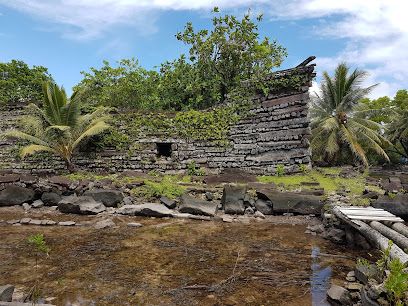
Truk Blue Lagoon Resort
Experience the beauty of the Truk Lagoon at Truk Blue Lagoon Resort, your ideal base for diving, relaxation, and cultural immersion in Chuuk.

Truk Stop Hotel & Restaurant
Experience local flavors and warm hospitality at Truk Stop Hotel & Restaurant in Weno, Chuuk - a culinary gem for every traveler.
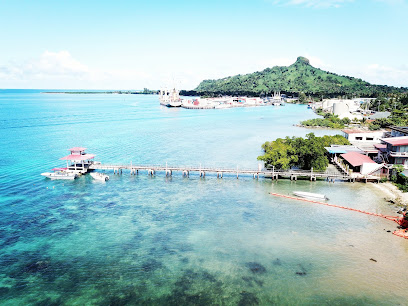
Chuuk Lagoon
Explore the stunning Chuuk Lagoon, a paradise of crystal-clear waters, vibrant marine life, and historical shipwrecks in the heart of Micronesia.
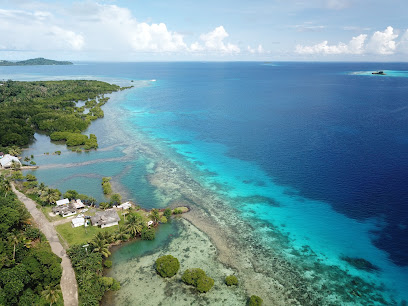
Level 5 Hotel
Experience the serene beauty and warm hospitality of Chuuk at Level 5 Hotel, your perfect getaway in the Pacific Islands.

Kepirohi Waterfall
Explore the enchanting Kepirohi Waterfall in Pohnpei, a perfect blend of stunning landscapes, refreshing swims, and serene hiking trails.
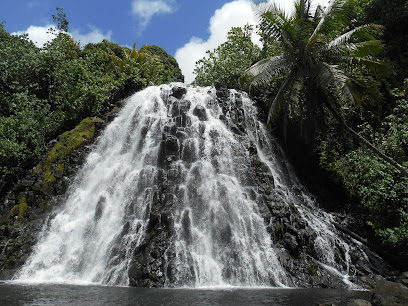
Kurassa Hotel
Discover tranquility and comfort in the heart of Chuuk at Kurassa Hotel, your gateway to tropical adventures and cultural experiences.
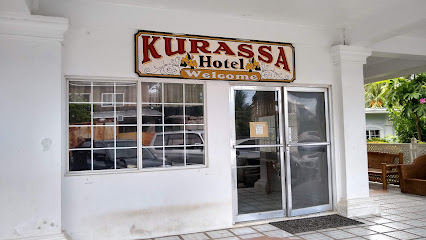
Chuuk International Airport
Discover the charm and beauty of Chuuk International Airport, your gateway to the stunning islands of Micronesia, rich in culture and nature.
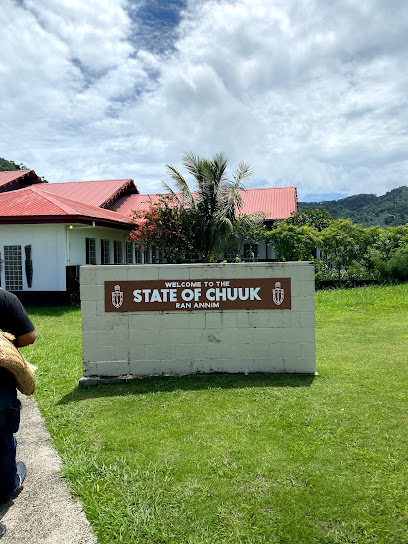
Truk Lagoon Dive Center at The Truk Stop Hotel
Explore the underwater wonders of Truk Lagoon at the premier Truk Lagoon Dive Center, where adventure and relaxation meet in paradise.
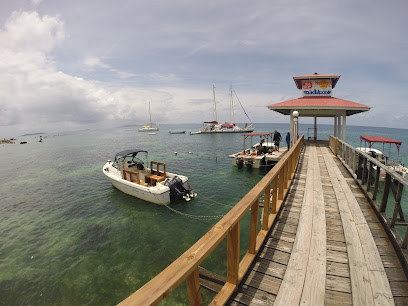
Truk Islands
Explore the Truk Islands – a tropical haven of stunning beaches, vibrant marine life, and rich historical treasures waiting to be discovered.
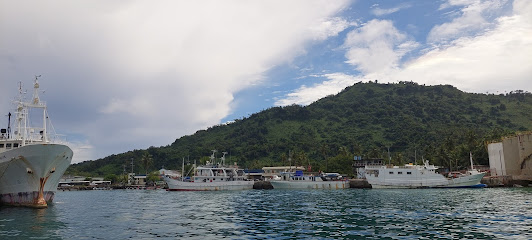
SS Thorfinn Liveaboard Dive Center
Explore the hidden treasures of Chuuk with SS Thorfinn Liveaboard Dive Center, your gateway to unforgettable scuba diving adventures.
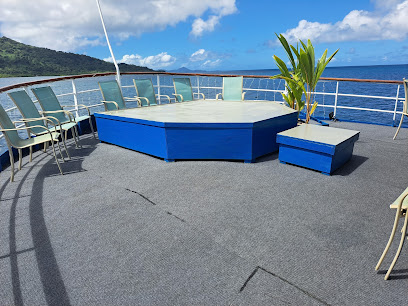
Spanish Wall Park
Explore the lush landscapes and tranquil ambiance of Spanish Wall Park, a must-visit destination in Kolonia, Pohnpei, perfect for relaxation and nature appreciation.
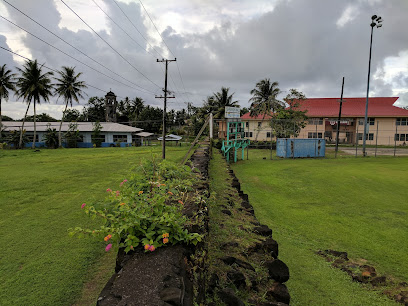
Royal Flush Game Room
Discover the vibrant atmosphere of Royal Flush Game Room in Weno, Chuuk, your ultimate island casino experience.

Wiichen Men's Meetinghouse
Discover the Wiichen Men's Meetinghouse, a cultural beacon in Weno, Chuuk, showcasing the rich traditions and community spirit of the Micronesian islands.

Neoch
Experience the breathtaking beauty and tranquility of Neoch Atoll, a hidden paradise in the Federated States of Micronesia.

Unmissable attractions to see
Japanese Power Plant
Explore the Japanese Power Plant in Chuuk, a fascinating tourist attraction showcasing innovative engineering amidst stunning tropical landscapes.
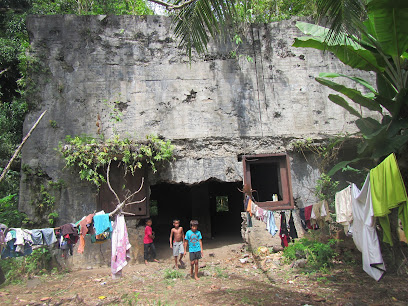
Tonoas Municipal Office Building
Explore the Tonoas Municipal Office Building in Roro, Chuuk, where local culture and community governance intersect in a vibrant setting.
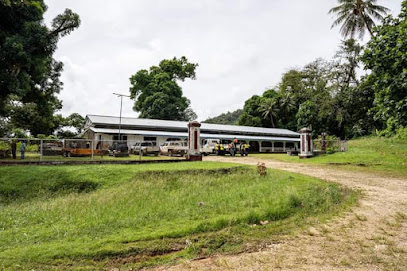
Uman Island Japanese Bunker
Explore the historical Japanese Bunker on Uman Island, a captivating site enveloped in the beauty of Micronesia's natural landscapes.
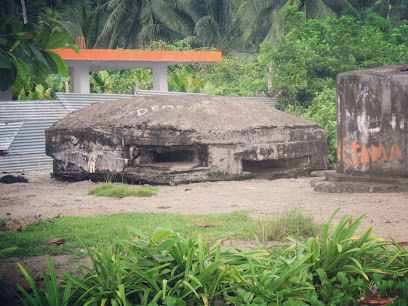
Japanese Building
Explore the historical Japanese Building in Nukan, Chuuk, a captivating tourist attraction that reflects the unique heritage of the region.
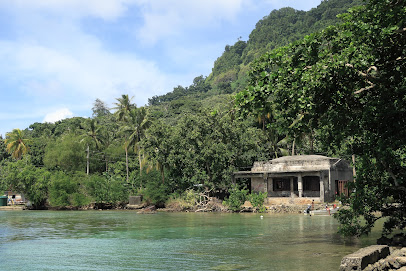
Epinum Rest Area
Discover tranquility at Epinum Rest Area, a peaceful park in Chuuk perfect for relaxation and enjoying nature's beauty.
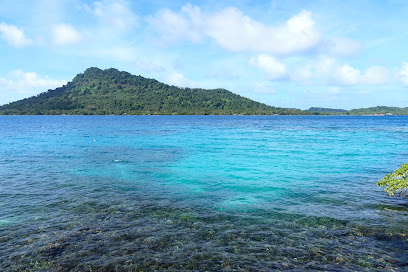
Essential places to dine
Truk Blue Lagoon Resort
Experience luxury and adventure at Truk Blue Lagoon Resort in Chuuk – your gateway to tropical paradise and underwater wonders.

Truk Stop Hotel & Restaurant
Discover authentic Chuukese cuisine at Truk Stop Hotel & Restaurant – where local flavors meet warm hospitality in Weno.
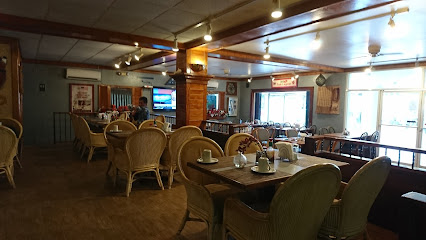
Level 5 Hotel
Discover comfort and local charm at Level 5 Hotel in Weno, Chuuk - your gateway to adventure and relaxation.

Kurassa Hotel
Discover tranquility at Kurassa Hotel on Iras Island – your gateway to the stunning natural beauty of Chuuk.
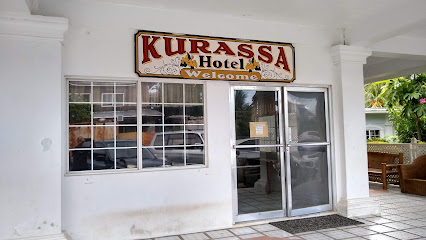
LeiSide Restaurant
Discover authentic Chuukese cuisine at LeiSide Restaurant in Weno – a culinary journey through Micronesia's rich flavors.
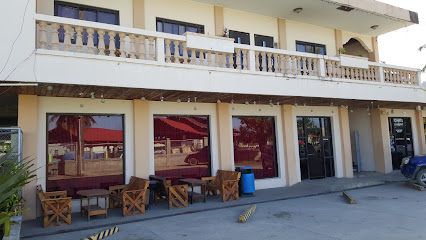
Oriental Restaurant
Discover authentic Asian cuisine at Oriental Restaurant in Weno, Chuuk - a culinary delight for every traveler.
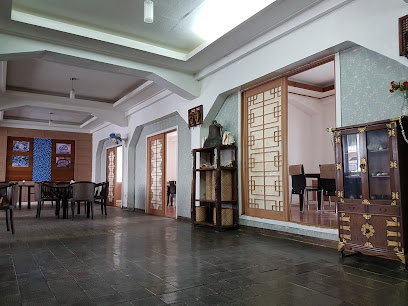
J-Square
Experience the vibrant fast food scene at J-Square in Weno, Chuuk—where local flavors meet quick bites.
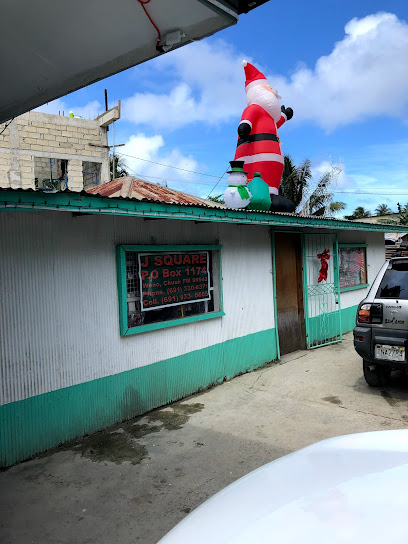
Truk Lagoon Dive Center at The Truk Stop Hotel
Explore Truk Lagoon's world-famous wreck dives while enjoying comfort at The Truk Stop Hotel - an unforgettable adventure awaits.
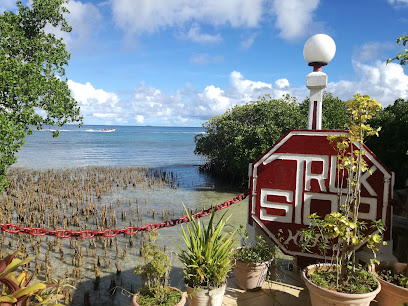
Blue Lagoon Restaurant
Discover the delightful flavors of Chuuk at Blue Lagoon Restaurant—where stunning views meet exceptional cuisine in a warm atmosphere.
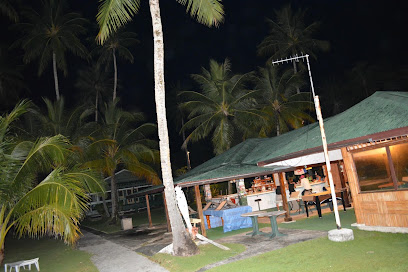
BS Café
Experience delightful cuisine at BS Café in Weno, Chuuk – where local flavors meet international flair for an unforgettable dining experience.
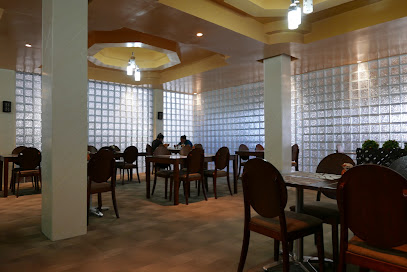
Jeff’s Kitchen
Experience the authentic taste of Chuuk at Jeff's Kitchen – where local flavors meet warm hospitality in Weno.
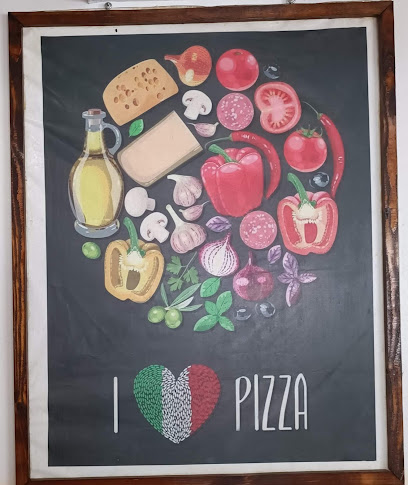
Roosevelt's Bakery
Discover Roosevelt's Bakery in Weno, Chuuk: A delightful stop for fresh pastries and local flavors amidst stunning island scenery.
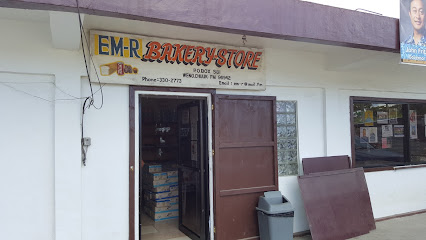
Momma’s MidLand Diner
Experience authentic local cuisine at Momma’s MidLand Diner in Weno, Chuuk – where every bite tells a story.
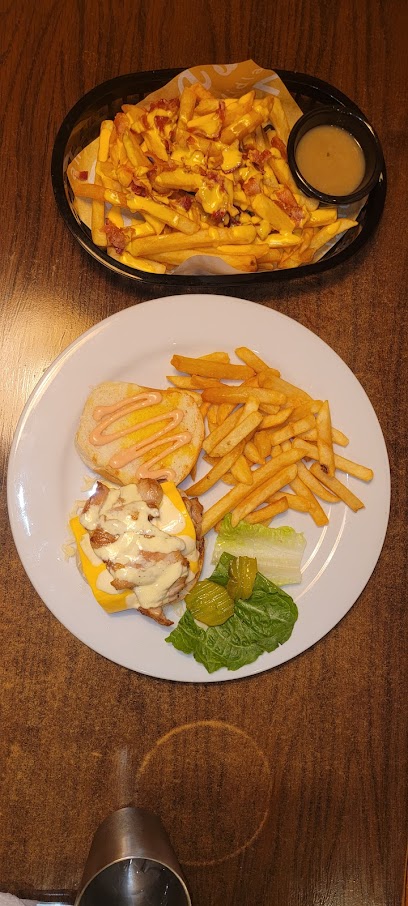
Kurassa Bakery
Discover Kurassa Bakery in Weno, Chuuk – where local flavors meet freshly baked delights in a cozy atmosphere.

Sunrise Resto
Experience authentic Micronesian flavors at Sunrise Resto in Weno, Chuuk – where every meal tells a story.
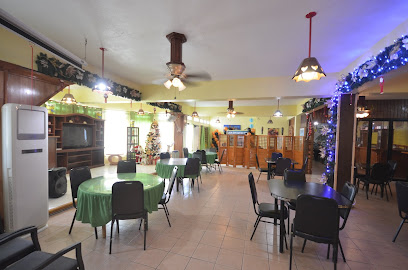
Markets, malls and hidden boutiques
TRIPLE '' S '' STORE
Discover the local flavors and vibrant atmosphere of Chuuk at Triple 'S' Store, your gateway to authentic grocery shopping.
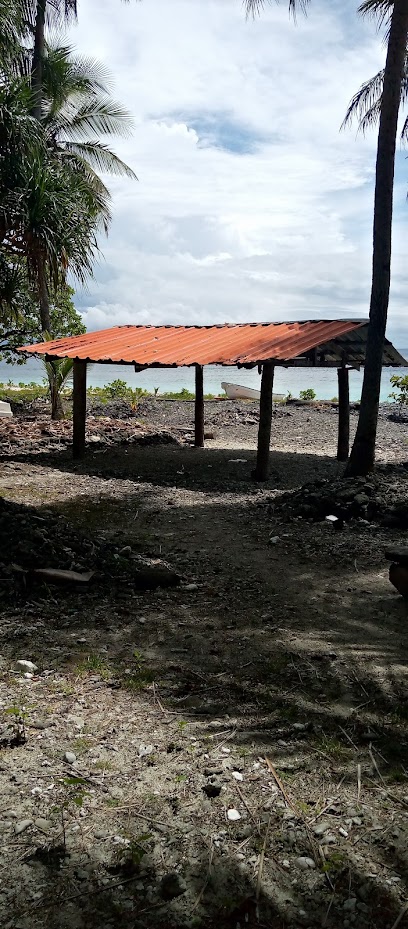
Island Mart
Discover local treasures and vibrant culture at Island Mart in Weno, Chuuk - a shopping paradise for every tourist.
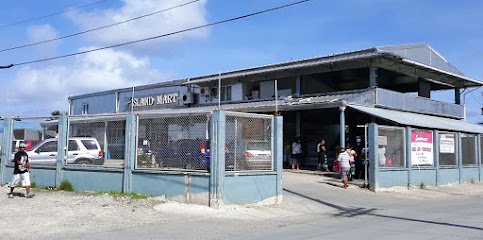
Ace Hardware Store
Explore the heart of Weno, Chuuk, at Ace Hardware Store—a treasure trove of tools and supplies for your island adventures.
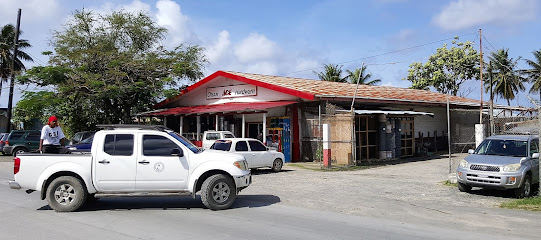
M & S Store
Explore M & S Store in Neiwe, Chuuk for unique local products and authentic souvenirs that showcase the rich culture of Micronesia.

Shigeto's Store
Explore the vibrant offerings at Shigeto's Store in Weno, Chuuk, where local culture and unique treasures await every tourist.
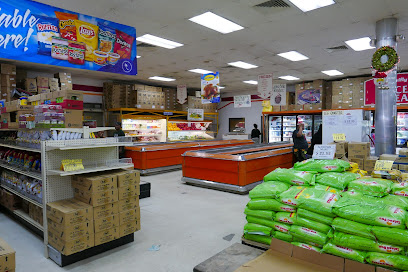
TIP Minimart
Explore local flavors and essentials at TIP Minimart in Weno, Chuuk – your gateway to authentic island experiences.

Leiside Furniture Store
Explore the artistry of Chuuk at Leiside Furniture Store, where every piece of furniture reflects the rich culture and craftsmanship of the islands.
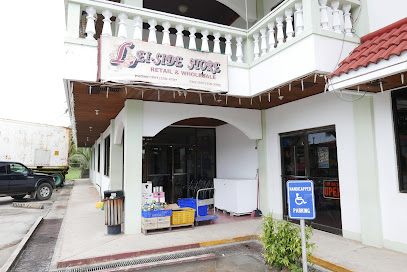
Kurassa Bakery
Discover the delightful flavors of Chuuk at Kurassa Bakery, where every bite is a taste of paradise in Weno.

A&A Store
Discover the A&A Store in Chuuk, where local culture meets unique shopping, and take home a piece of this beautiful island paradise.

Lekis Store
Experience the heart of Chuuk at Lekis Store, where local culture and unique products come together for an unforgettable shopping experience.

Deal Fair Store
Experience local culture and convenience at Deal Fair Store in Weno - your ultimate shopping destination in Chuuk.
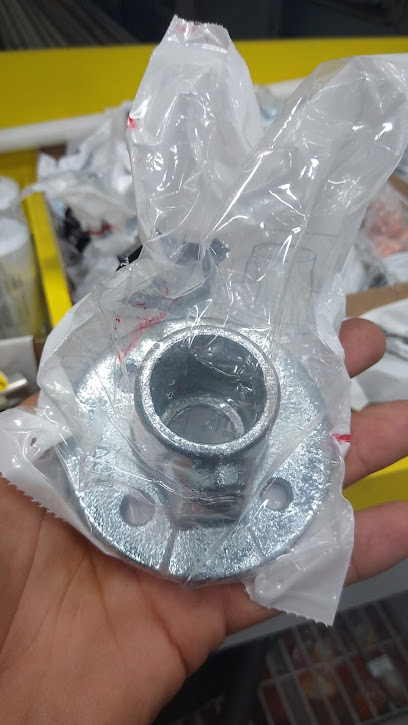
SAKI STORES 4
Discover local culture and unique souvenirs at SAKI STORES 4, a vibrant shopping destination in Weno, Chuuk offering an authentic island experience.
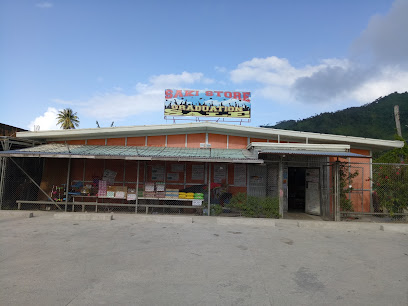
Kurassa Store
Experience local culture and hospitality at Kurassa Store, Weno's beloved general store for essentials and unique souvenirs.

SAKI STORES 1
Discover local flavors and vibrant shopping at SAKI STORES 1, a must-visit hypermarket in Weno, Chuuk for all your essentials.

SAKI STORES 2
Discover the local flavors and essentials at SAKI STORES 2, Weno's go-to hypermarket for tourists and locals alike.

Essential bars & hidden hideouts
Truk Blue Lagoon Resort
Discover the serene beauty and vibrant marine life at Truk Blue Lagoon Resort in Chuuk, Micronesia – a paradise for relaxation and adventure.

Truk Stop Hotel & Restaurant
Discover the rich flavors of Chuuk at Truk Stop Hotel & Restaurant, where local tradition meets a tropical dining experience.
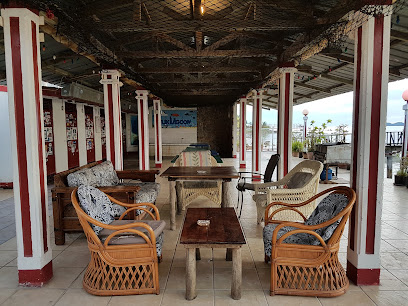
Chuuk Lagoon
Explore the breathtaking beauty of Chuuk Lagoon, a diver's paradise rich in marine life and historical shipwrecks from World War II.
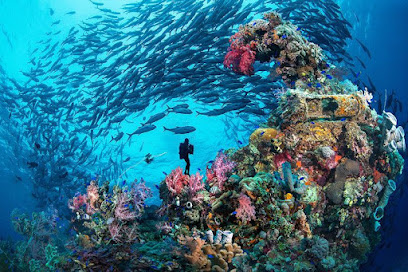
7 Stars Inn & Riverside Restaurant
Experience the perfect blend of local culture and exquisite dining at 7 Stars Inn & Riverside Restaurant on Pohnpei Island.

Kurassa Hotel
Discover the beauty and tranquility of Kurassa Hotel on Iras Island, your ideal retreat in the heart of Chuuk, where comfort meets culture.
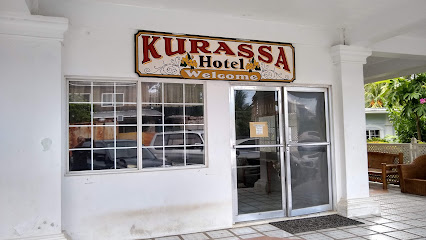
Chuuk International Airport
Discover the beauty of Chuuk Islands, where adventure begins at Chuuk International Airport, your gateway to the South Pacific's hidden gems.
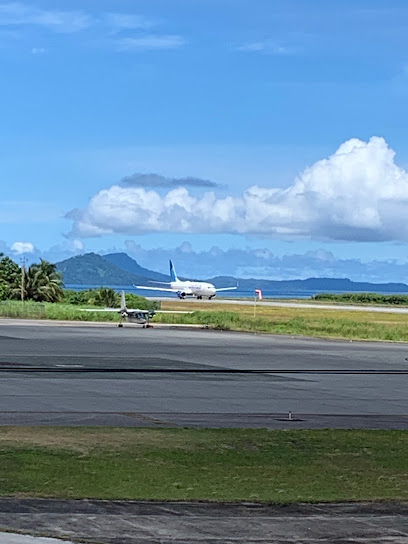
Truk Lagoon Dive Center at The Truk Stop Hotel
Experience the thrill of diving in Truk Lagoon, a treasure trove of underwater wrecks and vibrant marine life in Micronesia.
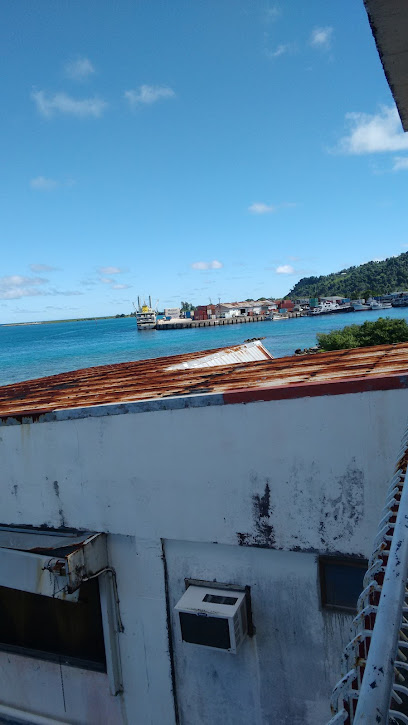
Blue Lagoon Restaurant
Discover the flavors of Chuuk at Blue Lagoon Restaurant, where fresh seafood meets stunning lagoon views for an unforgettable dining experience.
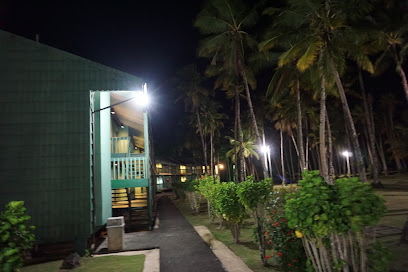
BS Café
Discover the culinary delights of BS Café in Weno, Chuuk, where local flavors meet international cuisine in a cozy atmosphere.
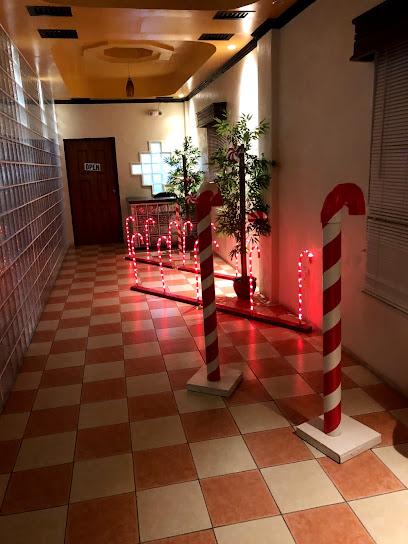
His & Hers School & Office Supplies
Explore unique supplies and gifts at His & Hers School & Office Supplies in Weno, Chuuk—where local culture meets quality products.
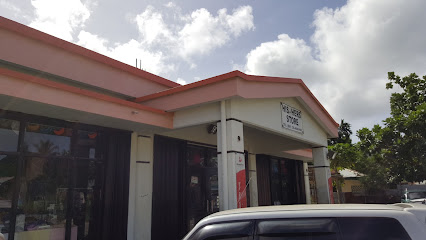
Mangroove Bar
Discover the vibrant Mangroove Bar in Weno, where tropical drinks meet a lively atmosphere in the heart of Chuuk's stunning scenery.
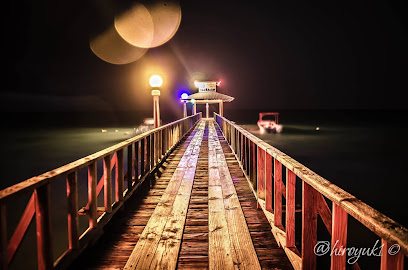
Choice Fast Food & Snack Bar
Experience the vibrant flavors of Chuuk at Choice Fast Food & Snack Bar, where quick meals meet local charm.
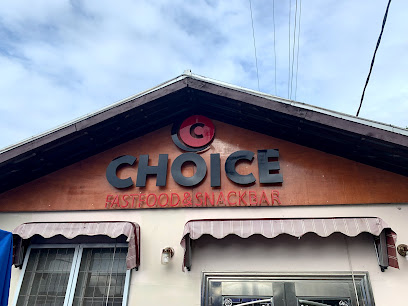
SAKI STORES 2
Explore SAKI STORES 2 in Weno, Chuuk - your go-to hypermarket for local goods, fresh produce, and a taste of everyday island life.

SAKI STORES 3
Explore SAKI STORES 3 in Weno: Your gateway to local products and an authentic shopping experience in Chuuk.
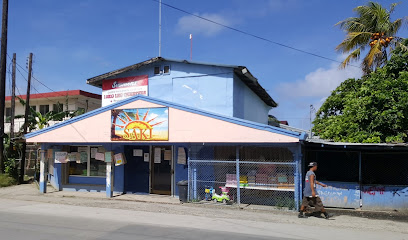
Island Pantry
Discover the local charm of Island Pantry in Weno, a convenient stop for essentials and local flavors in beautiful Chuuk.

Local Phrases
-
- HelloRan Annim
[Ran Annim] - GoodbyeKite
[Kite] - YesOw
[Ow] - NoNge
[Nge] - Please/You're welcomeKite
[Kite] - Thank youKinisou
[Kinisou] - Excuse me/SorryWewe
[Wewe] - How are you?Kaselel
[Kaselel] - Fine. And you?Kaselel. Ieni?
[Kaselel. Ieni?] - Do you speak English?Koasen English?
[Koasen English?] - I don't understandNge achochoch
[Nge achochoch]
- HelloRan Annim
-
- I'd like to see the menu, pleaseMwe menu, kite
[Mwe menu, kite] - I don't eat meatNge base chon
[Nge base chon] - Cheers!Kapwe
[Kapwe] - I would like to pay, pleaseMwe sengen, kite
[Mwe sengen, kite]
- I'd like to see the menu, pleaseMwe menu, kite
-
- Help!Kosom
[Kosom] - Go away!Kouwe
[Kouwe] - Call the Police!Kososun Polis
[Kososun Polis] - Call a doctor!Kososun dokta
[Kososun dokta] - I'm lostNgei pulap
[Ngei pulap] - I'm illNgei seses
[Ngei seses]
- Help!Kosom
-
- I'd like to buy...Mwe chon...
[Mwe chon...] - I'm just lookingNge chon kewe
[Nge chon kewe] - How much is it?Ow kukunen?
[Ow kukunen?] - That's too expensiveNgefiwe kukunen
[Ngefiwe kukunen] - Can you lower the price?Koasen kukunen
[Koasen kukunen]
- I'd like to buy...Mwe chon...
-
- What time is it?Mwe ena kuk?
[Mwe ena kuk?] - It's one o'clockRan kewe
[Ran kewe] - Half past (10)Sourou (10)
[Sourou (10)] - MorningAinim
[Ainim] - AfternoonAinimwinim
[Ainimwinim] - EveningAinimwien
[Ainimwien] - YesterdayRan epwe
[Ran epwe] - TodayRan mwahu
[Ran mwahu] - TomorrowRan mwahu
[Ran mwahu] - 1Ach
[Ach] - 2Sow
[Sow] - 3Sri
[Sri] - 4For
[For] - 5Fan
[Fan] - 6Siks
[Siks] - 7Sev
[Sev] - 8Et
[Et] - 9Nain
[Nain] - 10Ten
[Ten]
- What time is it?Mwe ena kuk?
-
- Where's a/the...?Iei...
[Iei...] - What's the address?Iei wewesen?
[Iei wewesen?] - Can you show me (on the map)?Koasen pein map?
[Koasen pein map?] - When's the next (bus)?Mwe ena waun (bus)?
[Mwe ena waun (bus)?] - A ticket (to ....)Pein ticket (to ....)
[Pein ticket (to ....)]
- Where's a/the...?Iei...
History of Chuuk
-
The Chuuk Islands, known to their inhabitants as 'Truk', have been inhabited for over 2,000 years. Early Chuukese society was organized into matrilineal clans and was known for its seafaring prowess. The islands' strategic location in the Pacific made them a hub of maritime trade and cultural exchange among the Micronesian islands.
-
Chuuk was first encountered by European explorers in the 16th century, but it wasn't until the late 19th century that the islands came under colonial rule. In 1899, Spain sold the islands to Germany, marking the beginning of German administration. German rule brought changes to the local economy and social structure, but traditional Chuukese culture remained resilient.
-
During World War I, Japan seized control of Chuuk from Germany. The islands were formally mandated to Japan by the League of Nations in 1920. Under Japanese rule, Chuuk became a significant military base and saw extensive infrastructure development. The Japanese influence can still be seen in local customs, language, and architecture.
-
Chuuk Lagoon was a major Japanese naval base during World War II. In February 1944, the United States launched Operation Hailstone, a massive air and naval attack that decimated the Japanese fleet anchored in the lagoon. The operation left behind numerous shipwrecks and aircraft, turning Chuuk Lagoon into one of the world's premier wreck diving destinations.
-
After World War II, Chuuk came under the administration of the United States as part of the Trust Territory of the Pacific Islands. This period saw significant changes, including the introduction of modern education and infrastructure. The influence of American culture became more pronounced, though traditional Chuukese practices continued to thrive.
-
In 1986, Chuuk became part of the Federated States of Micronesia, gaining greater autonomy while maintaining a Compact of Free Association with the United States. Today, Chuuk is known for its rich cultural heritage, stunning natural beauty, and historical significance. The islands continue to blend traditional practices with modern influences, offering a unique experience to visitors.
Chuuk Essentials
-
Chuuk, part of the Federated States of Micronesia, is accessible primarily by air. The main point of entry is the Chuuk International Airport (TKK) located on Weno Island. United Airlines operates regular flights from Guam and other Micronesian islands. There are also occasional flights from Honolulu and Manila. To reach the outer islands, travelers can use small boats or inter-island flights provided by local airlines.
-
Transportation in Chuuk is relatively straightforward. On Weno Island, where the capital is located, taxis and rental cars are available. Public buses are limited, so taxis or rental cars are the most convenient options. For exploring the outer islands, boats are the primary mode of transportation. Be prepared for less formal schedules and potentially longer travel times between islands.
-
The official currency in Chuuk is the United States Dollar (USD). Credit cards are accepted in some hotels and restaurants on Weno Island, but cash is preferred and often necessary, especially on the outer islands. ATMs are available in Weno, but it is advisable to carry sufficient cash for your needs, particularly if you plan to travel to the more remote areas.
-
Chuuk is generally safe for tourists, but petty crime such as pickpocketing and theft can occur, particularly in crowded areas. Areas around the main town of Weno should be navigated with caution after dark. Always secure your belongings and avoid displaying valuables. Stay aware of your surroundings, especially in unfamiliar areas.
-
In case of an emergency, dial 911 for immediate assistance. The main hospital is located in Weno, which provides basic medical services. For severe medical emergencies, evacuation to Guam or Honolulu might be necessary, so travel insurance that covers medical evacuation is highly recommended. Pharmacies are available in Weno for minor health issues and medications.
-
Fashion: Do dress modestly, especially when visiting villages and religious sites. Avoid wearing revealing clothing. Religion: Do respect local customs and traditions. Ask for permission before entering churches or taking photos. Public Transport: Do be patient and respectful when using local boats or taxis. Don’t expect strict adherence to schedules. Greetings: Do greet locals with a friendly 'hello' or 'Ran annim'. Eating & Drinking: Do try local dishes such as breadfruit, taro, and fresh seafood. Don’t refuse food or drink offered by locals, as it is considered impolite.
-
To experience Chuuk like a local, visit the local markets where you can buy fresh produce and handmade crafts. Engage with the local community, as Chuukese people are generally friendly and welcoming. Don’t miss exploring the underwater wrecks of Truk Lagoon, a world-renowned diving site. Take part in traditional cultural events and festivals if your visit coincides with any.
Trending Landmark in Chuuk
-
Nan Madol
-
Truk Blue Lagoon Resort
-
Truk Stop Hotel & Restaurant
-
Chuuk Lagoon
-
Level 5 Hotel
-
Kepirohi Waterfall
-
Kurassa Hotel
-
Chuuk International Airport
-
Truk Lagoon Dive Center at The Truk Stop Hotel
-
Truk Islands
-
SS Thorfinn Liveaboard Dive Center
-
Spanish Wall Park
-
Royal Flush Game Room
-
Wiichen Men's Meetinghouse
-
Neoch
Nearby Cities to Chuuk
-
Things To Do in Weno
-
Things To Do in Kolonia
-
Things To Do in Pohnpei
-
Things To Do in Nan Madol
-
Things To Do in Mangilao
-
Things To Do in Yigo
-
Things To Do in Santa Rita
-
Things To Do in Dededo
-
Things To Do in Sinajana
-
Things To Do in Tamuning
-
Things To Do in Tumon
-
Things To Do in Agat
-
Things To Do in Hagåtña
-
Things To Do in Agana Heights
-
Things To Do in Koblerville








